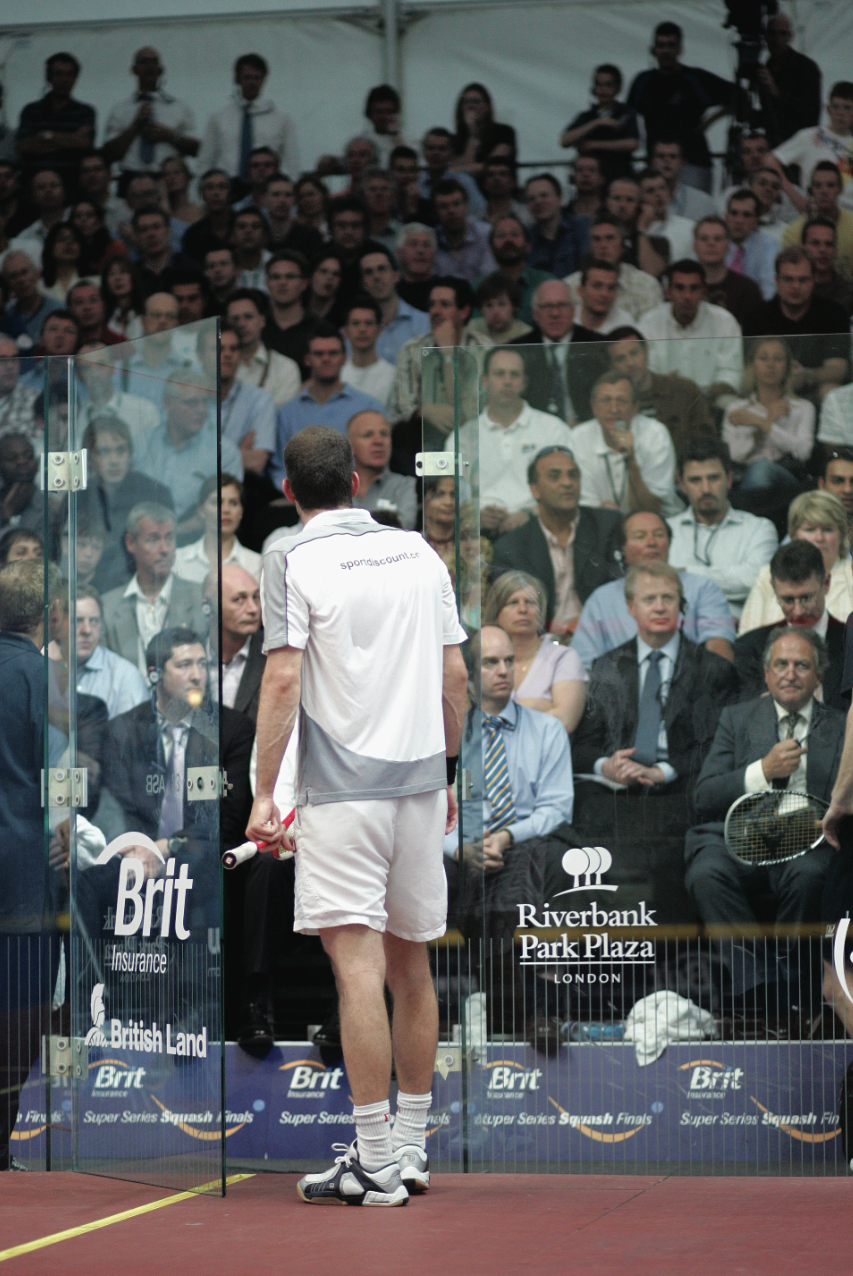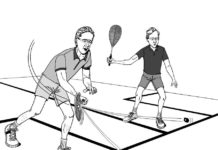By Rod Symington, WSF Referees and Rules Committee
One of the least known Rules of Squash is Rule 15: “Duties of the Players.” Those players who do read the Rules tend to concentrate (understandably) on the major elements, such as interference and turning. The provisions of Rule 15 remind us of a time when winning wasn’t the only thing and people believed that it is how you play the game that counts. With the world-wide spread of squash, the “old traditions” became blurred—and so it became necessary to instruct players about the things that used to be taken for granted.

The specific instructions contained in Rule 15 are straightforward: Be on time for your match, don’t place any of your junk in the court (leave your cell-phone in the car!), observe any clothing regulations of the club or the tournament, do not request a change of Referee, ask for lets in a polite manner (“Let, please”), do not distract your opponent deliberately, and do not leave the court without the Referee’s permission.
Many people may think that all of the above is obvious, but as is increasingly the case in modern life, explicit rules (or laws) have to be enacted to control those who do not live by the usual norms of society. Rule 15 was inserted into the Rules some years ago precisely because far too many players were ignorant of the unwritten traditions of the game.
The very first provision of Rule 15 may, however, be not so clear to everyone—and it has, indeed, caused some players to scratch their heads. It reads: “The players must observe all the Rules and the spirit of the game. Failure to do so could bring the game into disrepute and Rule 17 may be applied.”
People often ask: “What does that phrase mean—‘the spirit of the game’?” The Rules seem to assume that every player will know what it signifies, but if you don’t know, there are no words to guide you.
In essence, the spirit of the game encompasses all that is meant by “fair play,” and among the elements implicit in that concept, as it applies to squash, are: Warm the ball up fairly (i.e., don’t hog it all the time); ask for a let only if you really feel you deserve it; offer your opponent a stroke if you are in the way of a shot to the front wall; always avoid physical contact with your opponent; and if there is a Referee, accept his or her decisions without dissent and play on. All of these things are also fairly obvious to anyone who plays the game with the appropriate attitude.
I am sure that most readers of this column will be able to add their own personal observations to the above. Perhaps it would be useful to compile a list of all the elements of fair play suggested by readers and to publish them as a comprehensive guide to what is meant by “the spirit of the game.” We would all benefit—and so would the game of squash.





